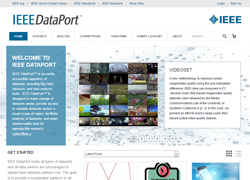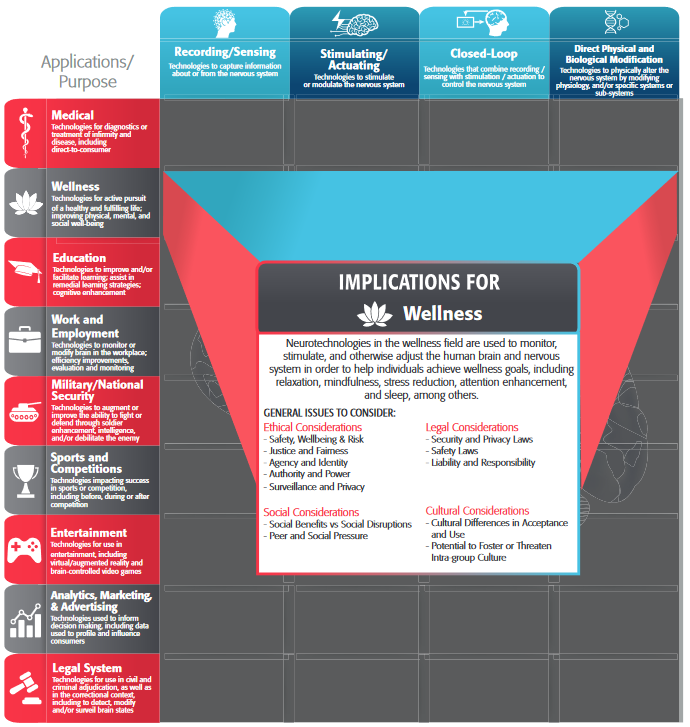OPINION

Would you like to get more exposure for your valuable Brain or Neuroscience research? Do you have datasets that require long-term storage and easy access long-term? You are invited to experience the exciting new data repository developed by IEEE called IEEE DataPort™! This IEEE data repository offers many benefits to researchers, data analysts, and institutions around the globe, and it is currently available at no cost. Access IEEE DataPort at https://ieee-dataport.org .
.
“As a researcher, often we spend much time in collecting a data set. After developing a methodology and analytic with the data set, we find a lack of other data sets to continue to our work. IEEE DataPort collects data for scientists and engineers and enables sharing so that we can all work on our research without worrying about any lack of data,” says Ray Liu, IEEE Division IX Director.
IEEE DataPort offers the following benefits to authors, researchers, industry data analysts, data scientists, and members of the global technical community at large:
- Accepts and stores datasets up to 2TB in size and can accept multiple file uploads
- Full integration with AWS (Amazon Web Services) to facilitate data analysis in the Cloud
- Persistent Digital Object Identifier (DOI) for each uploaded dataset and analysis
- Retains referenceable datasets that can support research reproducibility
- Supports government or other funder mandates for open access to research data
- Hosts and manages Data Competitions
“IEEE DataPort is a wonderful repository of datasets and the easiest way to host datasets that are accessible worldwide. As a data owner, it releases me from tedious work such as identifying a host server, building corresponding websites, regular maintenance, payments, etc. Recently, I shared VideoSet on DataPort and it works well no matter where a user is from. It has user-friendly interface and excellent download speed. It also supports direct feedback and response between users and owners,” says Haiqiang Wang, PhD student at University of Southern California.
Specific to the IEEE Brain Initiative, Professors Joaquin Anguera and Adam Gazzaley from University of California at San Francisco, UCSF, graciously released their NeuroRacer brain signal datasets for use in the Brain Data Bank Competitions in 2017. These competitions have been orchestrated by N. Nan Chu, an IEEE Brain Initiative Steering Committee member, representing the Consumer Electronics Society. About 80 GB of brain signals collected from 263 people tested over eight months, reflecting their cognitive control and memory capacity are uploaded to IEEE DataPort. Competition participants can use the UCSF brain signal data to review and re-interpret multi-tasking brain capability decline with age. The UCSF datasets represent one of the many options for brain research that are available via Open Access, enabling participants in the competitions to download or utilize them directly in AWS S3.
Narisa Nan Chu was the initiator of the IEEE Brain-Computer Interface (BCI) Hackathons in 2016. The successful Hackathons drew many invitations from IEEE conferences and symposiums around the globe to include similar competitions. While the BCI Hackathon will continue at the SMC 2017 Conference in Banff, Canada, a different focus regarding Brain Technology has been incorporated into the Brain Data Bank Competitions for this year. The theme of the 2017 competitions stems from non-uniform, yet massive brain data claimed around the world. Many of these sources are not easy to access, let alone to digest.
“I question the effectiveness of complicated algorithms in brain signal processing published over the last two decades. Raw test data can provide more reliable basis than subjectively filtered data outcome for pattern recognition and deep learning. Thus, access to statistically meaningful raw datasets is crucial to advance brain research. Using IEEE DataPort to host UCSF brain datasets is the first step for us, not just for the Competition purposes, but for the IEEE Brain Initiative to establish open data access, to better foster and accelerate brain research and development by anyone with access to Internet. We invite academia and entrepreneurs to tackle the usability and analytics of any existing brain databases in these competitions,” says Nan Chu. “The IEEE Brain Initiative Data Bank Competitions will be a second trial of using IEEE DataPort, following the Big Data Analytics Competition held at the International Conference on Biomedical and Health Informatics early in 2017. We will incorporate other publicly available brain databases to form the first Brain Data Bank under the IEEE DataPort as a result of these competitions,” continued Nan with high hopes.
Members of the IEEE Brain Initiative and members of the global technical community at large can access IEEE DataPort online. Login to IEEE DataPort the same way you login to your IEEE account; if you do not yet have an IEEE login, you can get one free here (no membership required).
IEEE is currently offering two valuable coupons to enable users to utilize the capabilities at no cost. To subscribe to IEEE DataPort, use coupon code DATAPORT1. Subscribers have access to all of the dataset files in the repository and can download and/or access the dataset files directly in Amazon Web Services S3. And if you need to upload an Open Access dataset, that can currently be done at no cost using coupon code OPENACCESS1. Please know that standard datasets (non-Open Access datasets) up to 2TB can always be uploaded at no cost!
IEEE DataPort can bring additional attention to your important Brain and Neuroscience research efforts! Visit the site today at https://ieee-dataport.org!
Questions and comments on IEEE DataPort? Contact melissa.handa@ieee.org.


